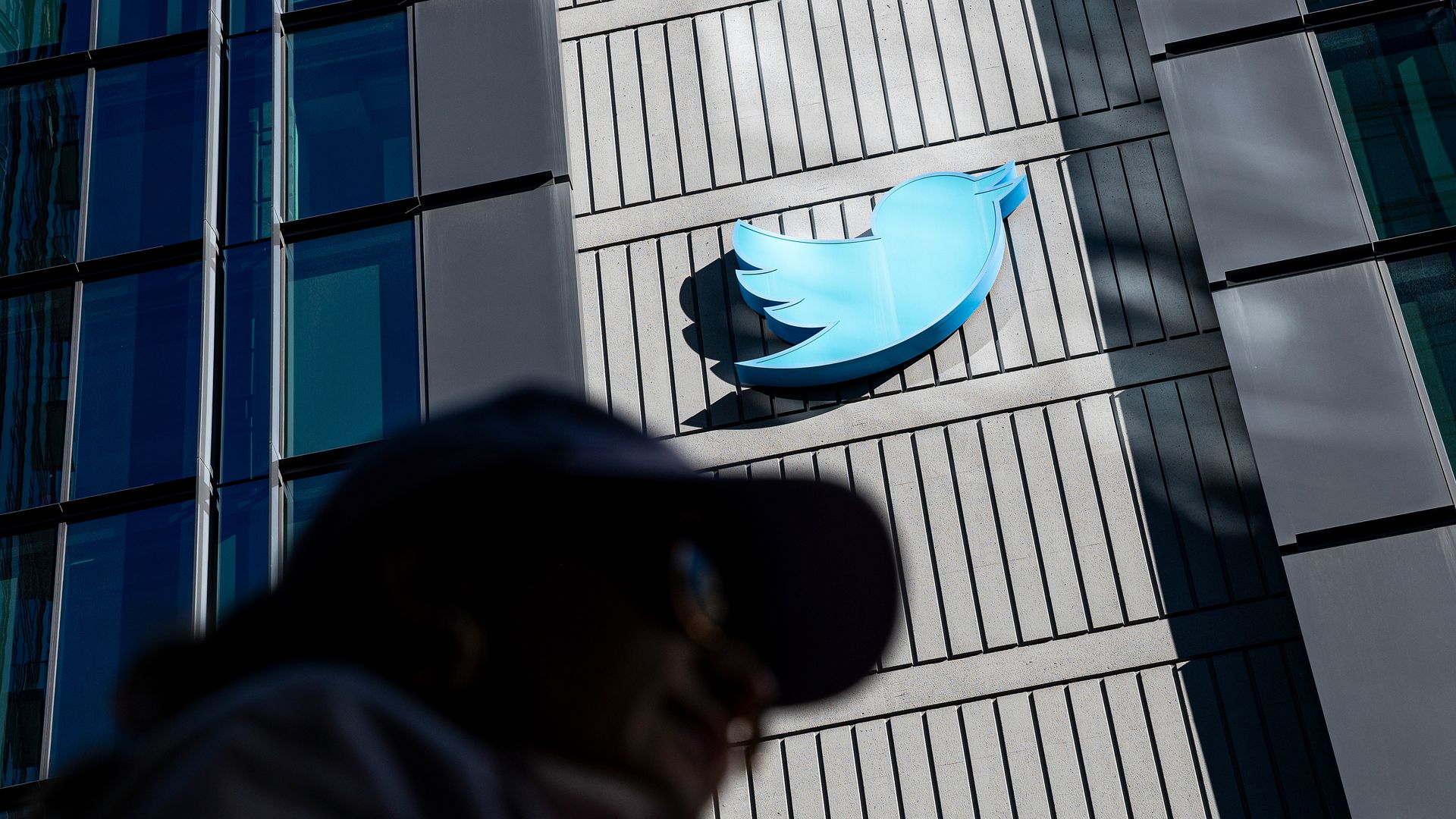
Twitter headquarters in San Francisco in November. Photo: David Paul Morris/Bloomberg via Getty Images
Twitter announced Sunday it would ban accounts used to promote other accounts on other specific social media platforms, including Facebook, Instagram and Mastodon.
Why it matters: The latest revision to Twitter’s rules under new owner Elon Musk comes at a moment when a significant volume of users have shown interest in other platforms, and Musk is trying to get more Twitter users to pay for the service.
- Twitter said it will remove tweets containing “free promotion” of prohibited social media platforms and would suspend accounts made specifically for the purpose of promoting other flagged platforms or content on them.
- It said it would still allow cross-posting content from any social media platform, including those flagged.
Between the lines: The change did not include other major social media or communication platforms like TikTok, WhatsApp, WeChat or Weibo.
What they’re saying: “We recognize that many of our users are active on other social media platforms. However, we will no longer allow free promotion of certain social media platforms on Twitter,” Twitter Support said in a tweet Sunday.
- “Specifically, we will remove accounts created solely for the purpose of promoting other social platforms and content that contains links or usernames for the following platforms: Facebook, Instagram, Mastodon, Truth Social, Tribel, Nostr and Post,” it added.
- “We still allow cross-posting content from any social media platform. Posting links or usernames to social media platforms not listed above are also not in violation of this policy.”
Jack Dorsey, Twitter’s co-founder who supported Musk’s takeover of the company, questioned the change in a tweet Sunday.
- He said in a separate tweet that it “doesn’t make sense.”
Our thought bubble, via Axios’ Ashley Gold: Banning links to competitors may raise eyebrows among regulators at the Federal Trade Commission, who are already closely watching changes at Twitter under Musk to track for violations of a previous consent order.
Flashback: The FTC has had its eyes on Twitter since Musk bought it, specifically watching to see if it can still comply with a 2011 consent decree covering users’ data privacy with a significantly downsized staff.
The bottom line: Banning promotion of other platforms could draw increased scrutiny from the regulator, which has recently taken action against other major tech companies for what it considers to be anti-competitive acts.
Go deeper: Global legal perils beset a downsized Twitter
Editor’s note: This story has been updated with additional details.






